John Hopkins: Iran 'extremely unlikely' to fall apart under pressure
A panel of experts at John Hopkins University’s School of Advanced International Studies (SAIS) has listed US miscalculations about Iran, saying the Islamic Republic is “extremely unlikely” to fall apart under foreign pressure and sanctions.
SAIS’s RETHINKING IRAN project has outlined “core policy principles” with regard to Iran, saying “it aims to provide the policy community with the most academically grounded analysis of contemporary Iran”.
“We are particularly focused on the effects of sanctions on Iranian society and the necessity for a ‘reexamination’ of sanctions policy rooted in sober social science,” the panel said.
“We hope to reach a bi-partisan audience through our work, particularly those officials who do not believe that the cruel effects of sanctions on the lives of everyday Iranians were precisely the goal of enacting such sanctions in the first place,” it said.
“We also contend that another US-led war in the Middle East is clearly not in the American national interest,” it added.
The academic initiative lists ten "core policy principles" related to America’s Iran policy, saying many of these principles are applicable irrespective of the outcome of the current negotiations to return the US to a 2015 nuclear deal with Iran.
“The Islamic Republic of Iran has proven to have a uniquely durable capacity to survive in comparison to other revolutionary” establishments, the panel said, noting that it is “extremely unlikely to fall apart as a result of foreign pressure, either by means of kinetic intervention, sanctions or support of opposition organizations”.
According to the analysis, the Iranian establishment “consists of rational actors making decisions on domestic and international policy out of conceptions of national interests”.
The establishment, it says, “is neither irrationally messianic nor antisemitic in its hard power calculations”.
Moreover, Iranian society and politics have shifted to "an intensification of Iranian nationalism that includes a populist religious element”.
“This element is strengthened by the popular perception that Iran has been humiliated by foreign powers and subjected to inhumane suffering due to US-imposed sanctions,” it said.
Such elements, it added, have broadened the Islamic Republic’s base of support within Iranian society.
The analysis explained that the US and Israeli assassinations of senior figures such as General Qassem Soleimani and the head of Iran’s nuclear program Mohsen Fakhirzadeh – along with the foreign sabotage of nuclear facilities – have intensified this dynamic.
According to the report, “a Cold War posture of the US towards Iran does not realistically account for the complexity of Iran and the US’s relationship in the context of the current power relations structuring the international community and the attendant regional dynamics”.
“Furthermore, Iran is not the Soviet Union, and a Cold War positioning and pursuit of a containment strategy modeled after US Soviet policy is neither appropriate nor realistic.”
The fifth principle listed by the study states that the Trump-era “maximum pressure” sanctions and the assassinations of Gen. Soleimani and Fakhrizadeh have neither led to a realignment of Iran’s regional posture nor halted the pursuit of the nuclear energy program.
“Instead, these actions have achieved quite the opposite results. These activities only strengthen actors opposed to increased cooperation and dialogue with the United States.”
According to the analysis, Ebrahim Raisi’s election as president of Iran in 2021 offers the US the unique ability to negotiate with a leader who is deeply embedded within and representative of the panoply of domestic actors that determine Iran’s foreign and security policy.
It advises that a rejoining of the US in the nuclear deal must be accompanied by mechanisms that allow foreign business entities especially those in Europe to be confident in their investments into the Iranian economy.
“The continued threat of Treasury Department sanctions after the nuclear accord went into effect undermined the support of the Rouhani government even prior to Trump’s withdrawal of the United States from the accord. Iranians saw very little of the promised economic benefits promised to them by Rouhani, thereby weakening his and his allies’ position significantly,” it said.
A reentry of the US into the accord and the removal of sanctions “should constitute the first, not last steps, in US-Iranian dialogue regarding regional security issues of mutual interest”, it further said.
It claimed that Russia and China “will only benefit geostrategically and economically should the US not reenter the agreement or should an agreement not include tangible mechanisms allowing for European trade with Iran”.
“As the US is seeking to reduce its military presence in the Middle East, after leaving Afghanistan and planning to leave Iraq by December 2021, a return to the nuclear deal is a key path towards reducing tensions and creating sufficient stability in the Middle East in order to allow the US to focus on East Asia and Russia,” it said.
Iran and six world powers—the US, Russia, China, France, Britain and Germany— clinched the JCPOA in 2015. Three years later, the JCPOA was unilaterally abandoned by Washington under Trump and sanctions were reinstated as part of the so-called maximum pressure campaign, in spite of Tehran’s strict compliance with the multilateral accord.
Following a year of strategic patience, Iran resorted to its legal rights stipulated in Article 26 of the JCPOA, which grants a party the right to suspend its contractual commitments in case of non-compliance by other signatories, and let go of some of the restrictions imposed on its nuclear energy program.
The parties to the JCPOA began high-profile talks in Vienna earlier this year after the administration of US President Joe Biden voiced willingness to rejoin the deal and remove the draconian sanctions his predecessor slapped on the Islamic Republic.
Since the beginning of the Vienna talks, Tehran has argued that the US—as the first party that violated the JCPOA—needs to take the first step by returning to full compliance with the agreement. Tehran also says it will resume all of its nuclear commitments under the deal only after the US removes all the sanctions in practice.
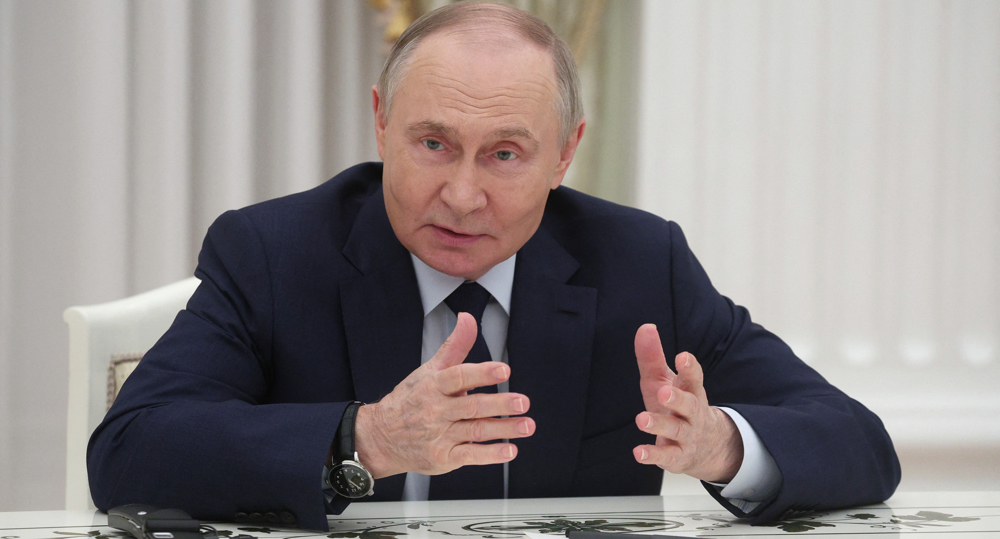
Russia's President Putin ratifies bill for strategic partnership with Iran
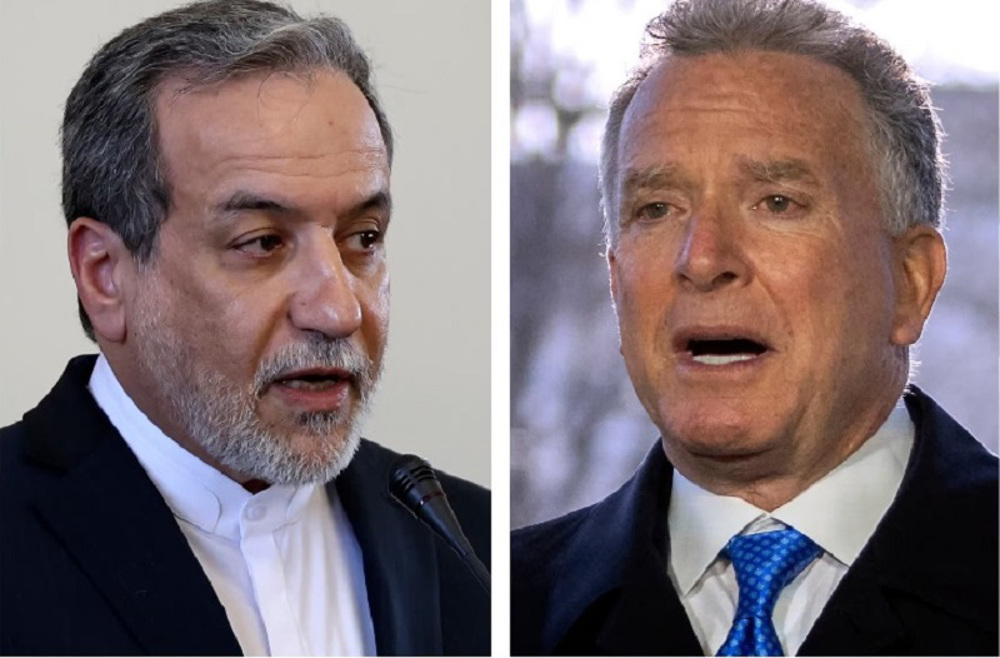
Indirect Iran-US talks proceed on 'constructive' note
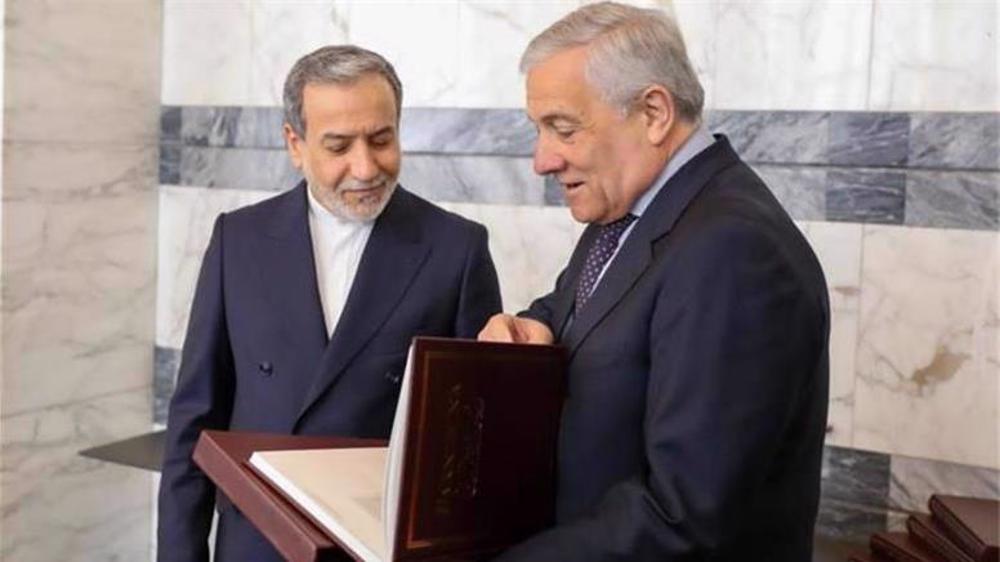
‘Rome talks made progress on principles of ‘likely deal’; optimism warranted but with great caution’
Israeli strikes kill nearly 10 Gazans, including two children, in new aggression
VIDEO | Rome talks & sword breaks in Gaza
VIDEO | Ireland remembers anti-colonial uprising
Day of Rage: Hamas calls on all Palestinians to attend pro-Gaza rallies
Certain groups manipulating Iran-US talks, goading US into making ‘maximalist demands’: FM
US warplanes strike Yemeni capital in new acts of aggression
‘A war crime’: UN blasts US envoy to Tel Aviv for defending Israel’s blockade on aid into Gaza
VIDEO | Press TV's news headlines


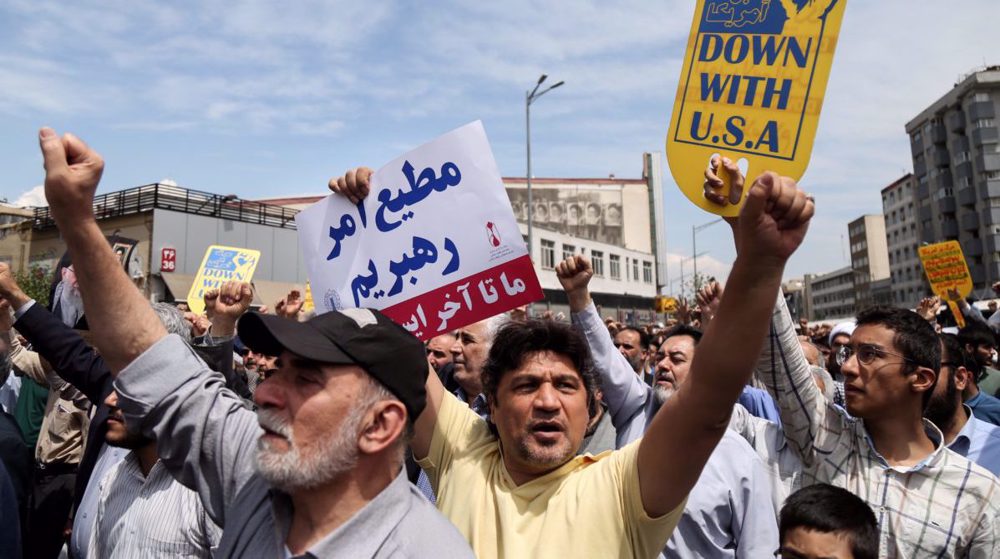
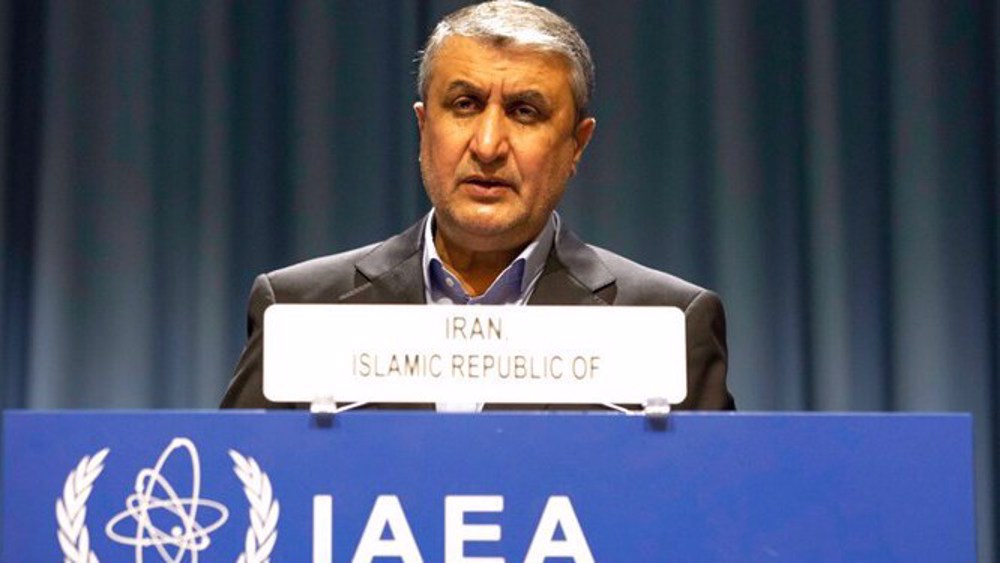




 This makes it easy to access the Press TV website
This makes it easy to access the Press TV website